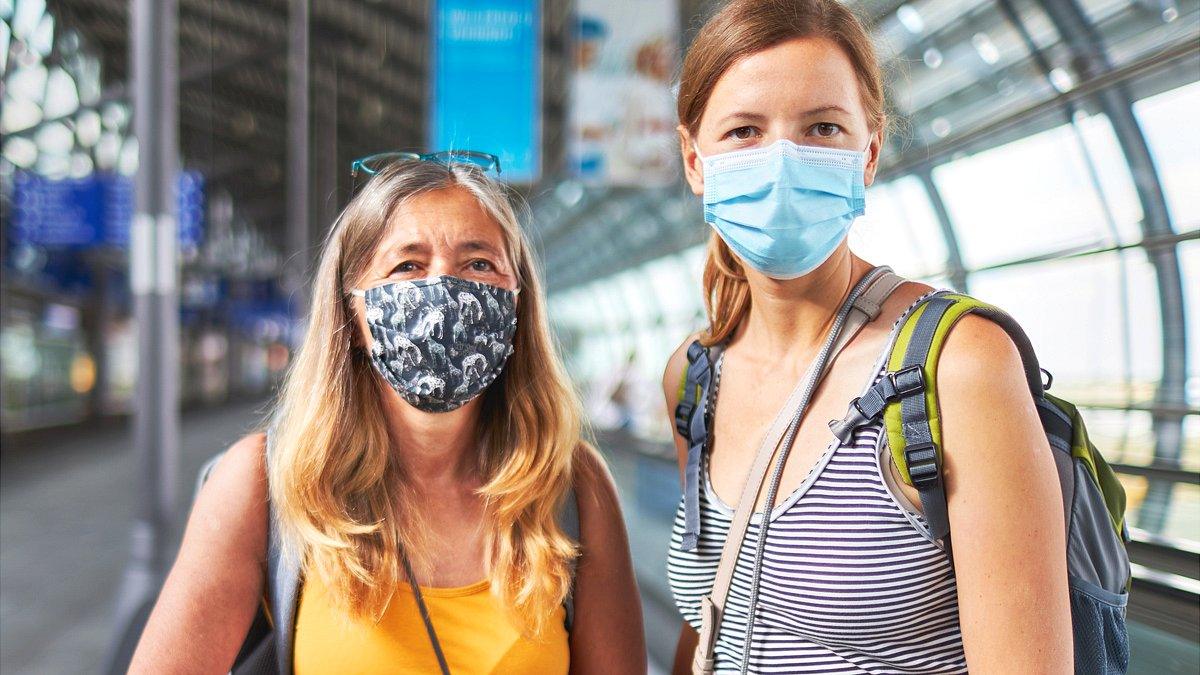Coronavirus: 52 tests for virus in NI come back negative
- Published
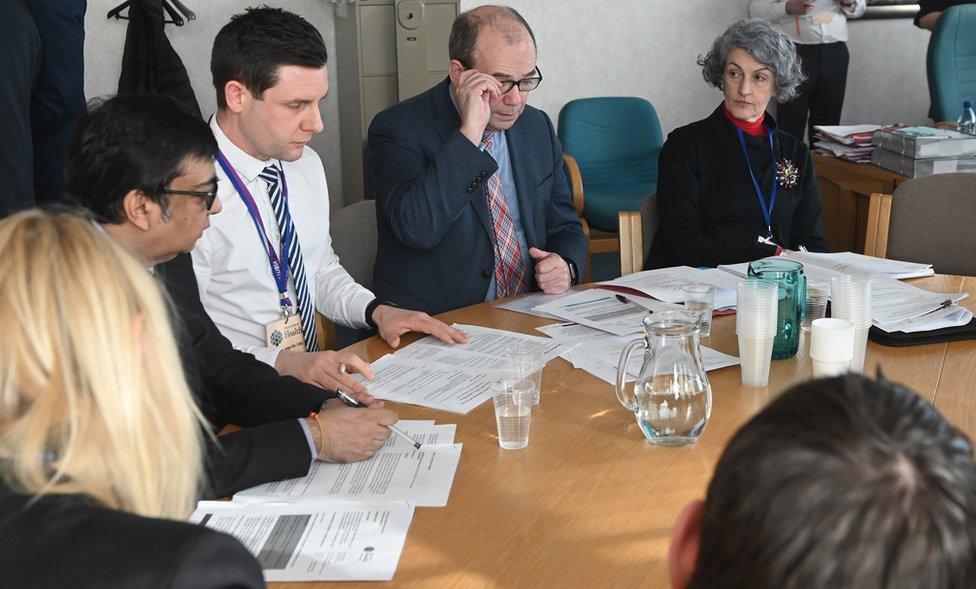
Health officials have outlined how the health service is prepared to deal with coronavirus cases
Fifty-two people in Northern Ireland have been tested for the coronavirus and results have all been negative, the Public Health Agency (PHA) has said.
There have been 13 confirmed cases in the UK to date, none of which are in Northern Ireland.
Health Minister Robin Swann said "tried and tested infection control procedures" were being used to prevent the spread of the virus.
The UK's chief medical officers have advised the risk remains moderate.
Allow X content?
This article contains content provided by X. We ask for your permission before anything is loaded, as they may be using cookies and other technologies. You may want to read X’s cookie policy, external and privacy policy, external before accepting. To view this content choose ‘accept and continue’.
In a statement to the Stormont assembly, Mr Swann said any confirmed cases in Northern Ireland would be admitted to the infectious disease unit at the Royal Victoria Hospital in Belfast.
He said guidance for other Northern Ireland Executive departments and their authorities, including schools, was being updated and would be issued soon.
"It is important we remain calm and focused on containment at this point," said Mr Swann.
"The risk to individuals in the UK has not changed at this stage but we should continue to plan and be ready for all eventualities."
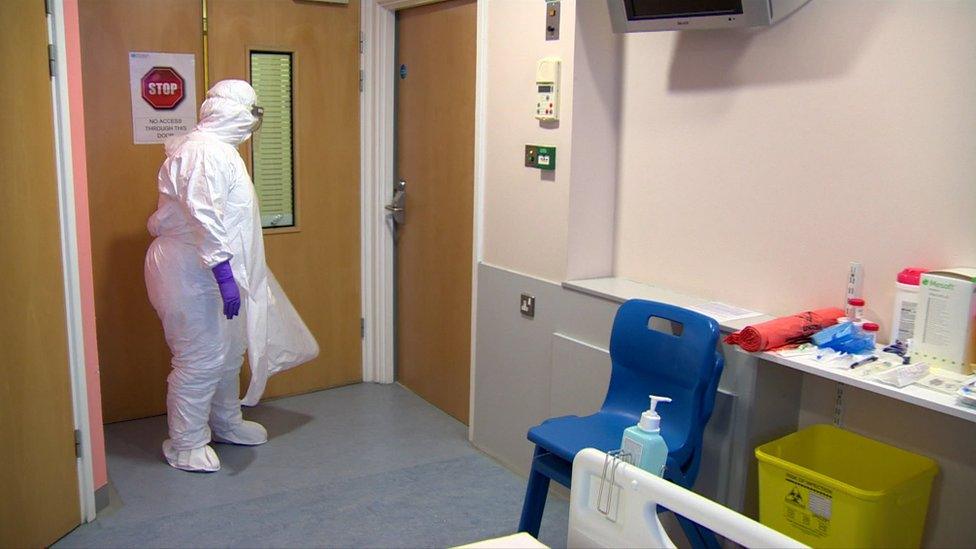
People with infectious diseases can be treated at an isolation ward at the Royal Victoria Hospital
Dr Miriam McCarthy, of the Health and Social Care Board, said the specialist isolation ward had "very high-specification facilities" and "dedicated expert staff accustomed to dealing with people with infectious diseases".
"That is the best place for people to be admitted, where they will be looked after with high-quality care with a specialist team that will help contain the infection and hopefully avoid further spread to other individuals," she said.
The authorities are focusing on preventing the disease's spread and asked for the public's help like practising good hand hygiene.
On Tuesday, pupils from three schools - Limavady Grammar School, Banbridge Academy and Cambridge House Grammar School in Ballymena - who had recently returned from school trips to northern Italy were sent home from class.
Cambridge House has sent its pupils home for 14 days.
In recent days Italy has become Europe's worst-affected country, with a surge in cases that appear to have spread to Austria, Croatia and Switzerland.
Ireland's men's and women's Six Nations games against Italy in Dublin on 7 and 8 March have been postponed because of coronavirus.
The PHA said only people who had been to a quarantined town in Italy must self-isolate.
In advice issued on Tuesday, the PHA said people who had travelled to other areas of northern Italy should only stay at home for 14 days if they developed a cough, fever or difficulty breathing.
If people have recently travelled to affected areas and develop symptoms they should contact their GP by phone.
Coronavirus, which was first detected in China, has spread to 27 other countries, including the UK.
About 80% of people infected with the virus develop mild symptoms but about 5% become critically ill, according to World Health Organisation (WHO) research.

What should I do if I have travelled recently?
The PHA has advised anyone experiencing symptoms who have been to northern Italy (excluding Pisa, Florence and Rimini) or Vietnam, Cambodia, Laos, Myanmar since 19 February to self-isolate and contact their GP by phone.
The same advice applies for those who are showing symptoms having been to China, Thailand, Japan, the Republic of Korea, Hong Kong, Taiwan, Singapore, Malaysia, Macau in the last 14 days.
They have also been urged not to attend a surgery or hospital without phoning in advance.
There is also guidance for those who have been to the Hubei Province (including Wuhan) in the last 14 days, or Iran, specific lockdown areas in northern Italy, external, or special care zones of South Korea, external since 19 February.
They have been asked to return home, contact the special coronavirus helpline on 0300 200 7885 then:
Stay indoors and avoid contact with others as much as possible for 14 days after you arrive
Do not go to work, school or public areas
Avoid visitors in your home
Do not use public transport or taxis

- Published26 February 2020
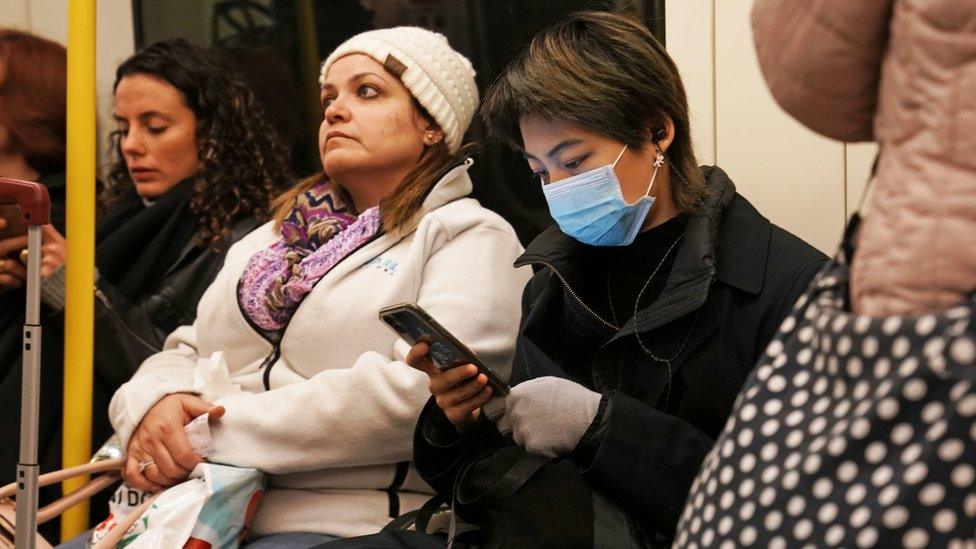
- Attribution
- Published26 February 2020

- Published11 March 2020
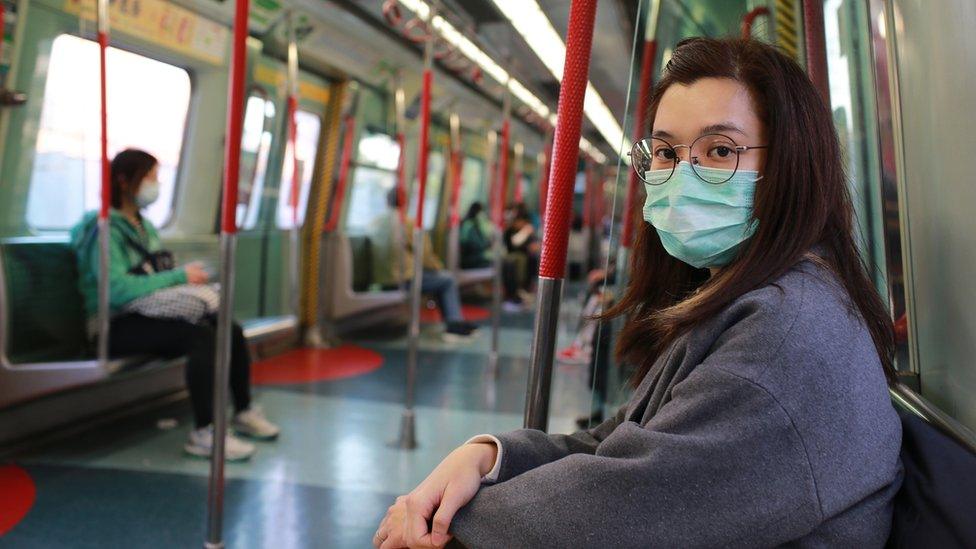
- Published29 November 2021
